Eating disorders can have adverse effects on an athlete’s health and sport performance, and thus require treatment. Additionally, there are other eating- and exercise-related problems that have been identified in athletes that can also have deleterious effects on an athlete’s health and performance. Because they do not always meet diagnostic criteria for an eating disorder, they have been described as “subclinical.” Regardless of how they are classified, such problems must be treated not only because of their health consequences, but also because they can progress to clinical eating disorders if left untreated.
Psychological Reasons
- Recovery for athletes with eating disorders without treatment is unlikely.
- Without treatment, the athlete can become isolated.
- Over time, the athlete will deteriorate physically and psychologically.
- Performance in athletes with eating disorders is eventually negatively affected.
- Poorer performance increases pressure on the athlete.
- The disorder is apt to be the athlete’s way to deal with pressure.
- An increase in pressure on the athlete increases the need for the disorder.
Medical Reasons
- Medical complications are common and potentially life-threatening in athletes with eating disorders.
- Many athletes with eating disorders and anorexia athletica have fluid, electrolyte, and energy imbalances, increasing the risk of cardiovascular compromise while competing.
- Postponing treatment can lead to worse outcomes.
- Malnutrition has a significant impact on thinking in athletes with eating disorders – affecting concentration, the ability to see things in context, and impair judgment.
- Malnutrition can lead to both brittle bones and metabolic compromise and increased risk of musculoskeletal injury.
- A compulsion to exercise and over train may make stabilization difficult in athletes with eating disorders without structure and support.
Special Considerations for Sport
Although anorexia nervosa can begin at any age, most often it has its onset around ages 13-14 and 17-18. These are not only high risk times for the development of anorexia, but they are also a time in the life of some adolescents when they become more serious about sport participation and may move to a higher level of competition. With such a move, pressures and expectations regarding sport performance may increase. The belief in the sport world that the thinner/leaner athlete performs better is alive and well in sport. Participation in a sport that emphasizes a thin body/shape or low weight might be attractive to a young athlete who, for whatever reason, has a need to lose weight or be thin. An endurance sport that requires a heavy training load might be even more attractive In such a circumstance, the sport may be used to “legitimize” attaining or maintaining a suboptimal (unhealthy) weight.
Participants in weight-class sports are probably more at risk for practicing pathogenic weight loss methods, which may lead to the development of bulimia nervosa or other eating disorders. Athletes in the “combative” weight-class sports (i.e., boxing, judo, taekwondo, wrestling, etc.) may be at increased risk because they attempt to compete at weight classes below their normal weight by “cutting weight” before the required weigh-in for their competitions. Many weight cutting strategies involve dehydration techniques that are essentially compensatory behaviors that are associated with bulimia nervosa. For many athletes, the practice of such behaviors can increase the probability of developing bulimia nervosa. More generally, athletes in nonlean sports tend to experience more body dissatisfaction than athletes in lean sports. Perhaps as a consequence, such athletes are more likely to use pathogenic weight loss methods, which again can increase their risk of bulimia nervosa and other eating disorders.
Unhealthy exercise has been described most often as “excessive exercise,” but numerous other terms, such as “compulsive” or “obligatory,” have also been used to describe unhealthy or symptomatic exercise. Regardless of how unhealthy exercise is described, it is often a significant problem for many if not most eating disorder patients. Although unhealthy exercise is sometimes difficult to assess and manage in non-athletes, it can be even more difficult in athletes. Part of the difficulty is that training loads in most sports today would be considered “excessive” by most non-sport standards. Certainly, the training required in most sports today would be more than is necessary for health and perhaps more than is necessary for certain fitness levels. Such levels of training are considered by many in the sport world to be necessary for optimal sport performance. Given this, it is ironic that too much training for some endurance athletes can result in “overtraining” syndrome (staleness) in which a decrement in sport performance is a common symptom. One of the difficulties with athletes with eating disorders is to determine when training loads for a particular athlete are necessary for sport performance and when such training is being used symptomatically by an athlete with an eating disorder to lose weight or to “undo” the effects of eating. In essence, this involves the nature of the relationship between the athlete’s disorder and his/her sport. That relationship must be appropriately assessed in order to determine how sport training (exercise) will be managed during treatment. This is only one of the many reasons why athletes constitute a special subpopulation of eating disorder patients and need specialized approaches to identification, management, and treatment. The Victory Program at McCallum Place provides these specialized approaches.














